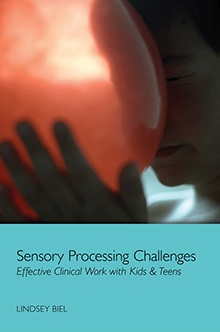What's going on?
It's reasonable to immediately consider diagnoses such as ADHD, OCD, or autism. Yet sensory processing ability—the way a child perceives and uses sensory input, whether it’s taste, touch, smell, sight, sound, or movement—significantly influences how a person feels and functions. Sensory challenges can masquerade as or accompany other conditions, clouding the clinical picture in terms of diagnosis and intervention.
Understanding sensory processing challenges is crucial to treating, teaching, or parenting a person of any age. Sensory issues are gaining attention as a hallmark of autism. Yet many people who aren’t autistic struggle with sensory issues. They may have unusual reactions to sensory experiences most people find unremarkable such as an aversion to bright lights, textures, and certain sounds. They may struggle with balance, coordination, and dexterity due to poor body awareness. They may become easily overstimulated and overwhelmed by life's constant barrage of sensory input and tune out or act out in response. That's why it's essential for clinicians to understand what sensory challenges look like, how they relate to other mental health disorders, and how they are best treated.
What’s in this book
Part I
- Recognizing Sensory Processing Challenges
- Your Client’s Sensory World
- Screening for Sensitivities
- What Is Sensory Processing Disorder?
Part II
- Using the Best Clinical Strategies
- Gaining Insight and Developing a Therapeutic Program
- Collaborating With Occupational Therapists and Other Professionals
- Empowering Strategies for Parents
- Working With Schools
- A Sensory Smart Future
What you'll learn
- Learn about sensory issues ranging from auditory hypersensitivity and tactile defensiveness to impaired multisensory processing.
- Understand how sensory issues drive behavioral problems and their role in psychiatric and developmental diagnoses.
- Recognize triggers and patterns to proactively handle self-stimulatory behaviors as well as sensory meltdowns.
- Implement therapeutic sensory programs and environmental modifications to help children feel and function better.
- Increase client, family, and school understanding of sensory issues and ability to communicate sensory challenges and strategies.
